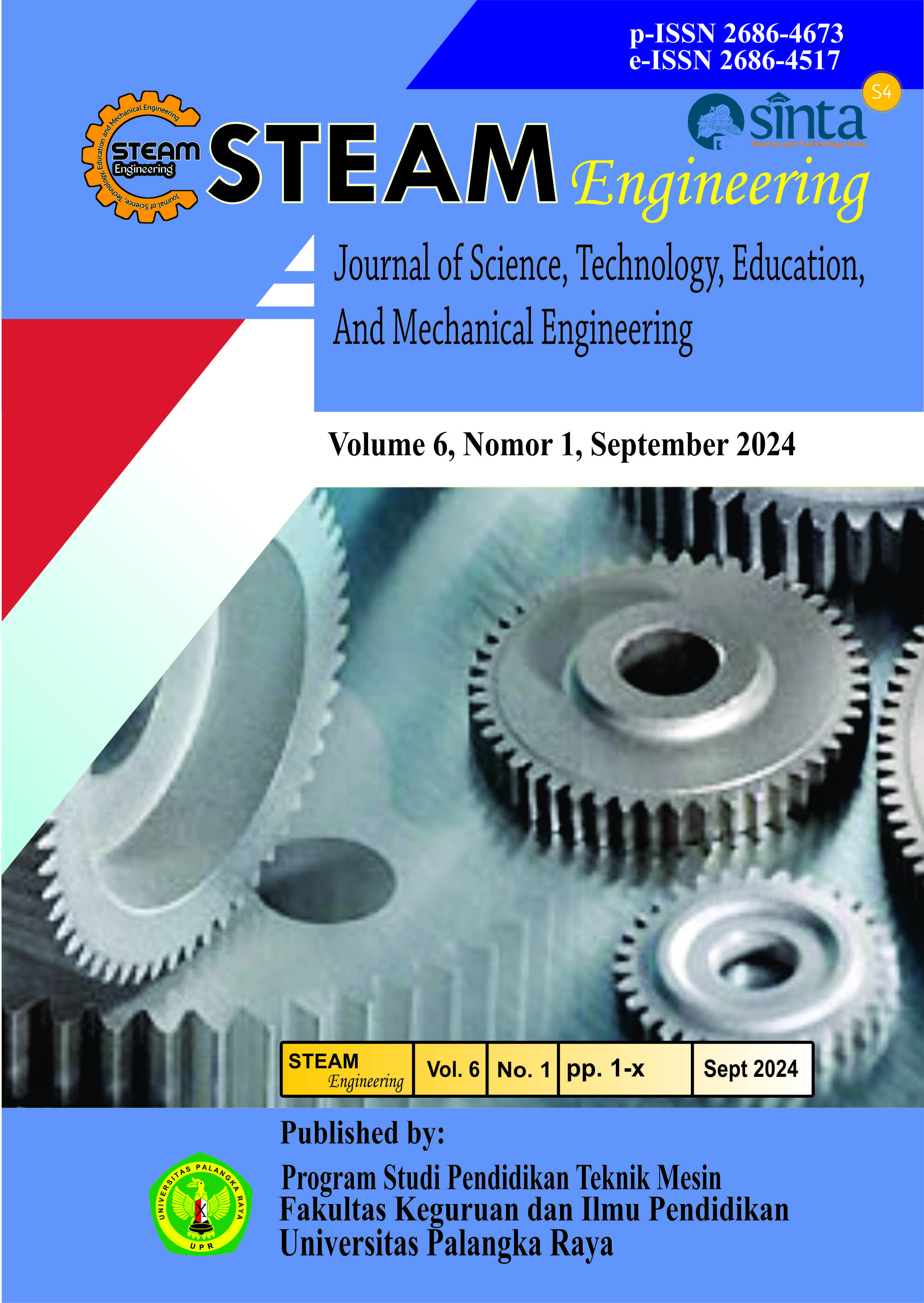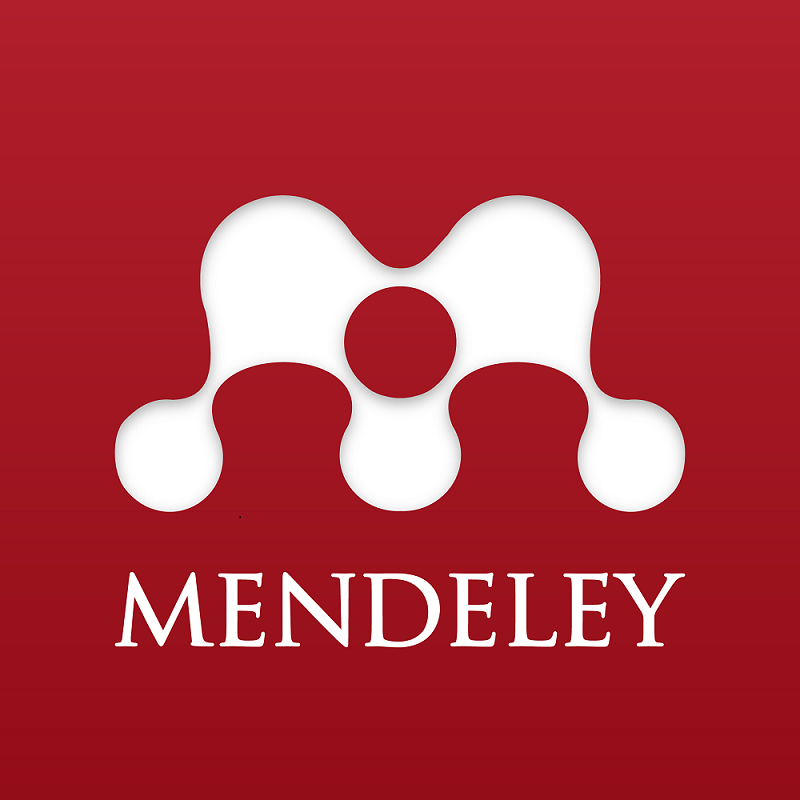TRANSFORMASI DIGITAL DALAM MENINGKATKAN KESIAPAN KERJA LULUSAN PROGRAM STUDI PENDIDIKAN TEKNIK MESIN UNIVERSITAS PALANGKA RAYA
DOI:
https://doi.org/10.37304/jptm.v6i1.18194Keywords:
digital transformation, work readiness, digital literacy, Fourth Industrial Revolution, Society 5.0Abstract
Digitalization is a major transformation in education, particularly in preparing graduates to face the challenges of the Fourth Industrial Revolution and Society 5.0. This study aims to analyze the impact of digital transformation on the work readiness of graduates from the Mechanical Engineering Education Program at Universitas Palangka Raya. Using a literature review method, the study identifies strategies for integrating technology into the curriculum, developing digital literacy, and collaborating with industries to ensure the relevance of graduate competencies. The findings indicate that technology-based curricula, improved digital literacy among educators, and support for educational infrastructure are critical factors in producing competent and adaptable graduates for the global job market. Strategic recommendations include strengthening professional training to enhance digital competencies among educators, integrating digital literacy into the curriculum, and developing digital leadership at the institutional level. Additionally, collaboration among universities, government, and industries is essential to design policies that support sustainable digital transformation. This study provides significant contributions to higher education institutions in designing strategies to improve graduate work readiness in the digital era
Downloads
References
Aditya, B. R., Ferdiana, R., & Kusumawardani, S. S. (2022). A barrier diagnostic framework in process of digital transformation in higher education institutions. Journal of Applied Research in Higher Education, 14(2), 749–761. https://doi.org/10.1108/JARHE-12-2020-0454
Alfaiz, A., Hidayat, H., Yandri, H., Sari, A. T. L., Sendayu, F. S., Suarja, S., & Arjoni, A. (2021). Identification of Perceived Self-Efficacy to Predict Student’s Awareness in Career Readiness. Islamic Guidance and Counseling Journal, 4(1), 124–132. https://doi.org/10.25217/igcj.v4i1.933
Bevinakoppa, S., Ray, B., & Sabrina, F. (2016). Effectiveness of Problem-Based Learning Implementation. International Journal of Quality Assurance in Engineering and Technology Education, 5(3), 46–58. https://doi.org/10.4018/IJQAETE.2016070104
Bond, M., Marín, V. I., Dolch, C., Bedenlier, S., & Zawacki-Richter, O. (2018). Digital transformation in German higher education: student and teacher perceptions and usage of digital media. International Journal of Educational Technology in Higher Education, 15(1), 48. https://doi.org/10.1186/s41239-018-0130-1
Cabero-Almenara, J., Guillén-Gámez, F. D., Ruiz-Palmero, J., & Palacios-Rodríguez, A. (2021). Digital competence of higher education professor according to DigCompEdu. Statistical research methods with ANOVA between fields of knowledge in different age ranges. Education and Information Technologies, 26(4), 4691–4708. https://doi.org/10.1007/s10639-021-10476-5
Chonsalasin, D., & Khampirat, B. (2022). The Impact of Achievement Goal Orientation, Learning Strategies, and Digital Skill on Engineering Skill Self-Efficacy in Thailand. IEEE Access, 10, 11858–11870. https://doi.org/10.1109/ACCESS.2022.3146128
Dito, S. B., & Pujiastuti, H. (2021). Dampak Revolusi Industri 4.0 Pada Sektor Pendidikan: Kajian Literatur Mengenai Digital Learning Pada Pendidikan Dasar dan Menengah. Jurnal Sains Dan Edukasi Sains, 4(2), 59–65. https://doi.org/10.24246/juses.v4i2p59-65
Ganefri, Hidayat, H., Yulastri, A., & Yondri, S. (2019). Design of Production-Based Entrepreneurship Technology Training Model to Improve the Skills of Engineering Students. International Journal of Innovative Technology and Exploring Engineering, 8(11), 2042–2047. https://doi.org/10.35940/ijitee.K1930.0981119
Gorshkova*, O. O. (2019). Technology to form Students’ Readiness for Research in Engineering Universities. International Journal of Engineering and Advanced Technology, 9(1), 3881–3887. https://doi.org/10.35940/ijeat.A1190.109119
Järvis, M., Ivanenko, L., Antonenko, I., Semenenko, T., Virovere, A., & Barantsova, T. (2022). Application of the Integration Model in the System of Inclusive Education. Journal of Curriculum and Teaching, 11(1), 35. https://doi.org/10.5430/jct.v11n1p35
Kunrath, K., & Beliatis, M. (2022). Design for impact (D4i): a framework for teaching sustainability in engineering design. Towards a New Future in Engineering Education, New Scenarios That European Alliances of Tech Universities Open Up, 468–477. https://doi.org/10.5821/conference-9788412322262.1424
Kuzu, Ö. H. (2020). Digital Transformation in Higher Education: A Case Study on Strategic Plans. Vysshee Obrazovanie v Rossii = Higher Education in Russia, 29(3), 9–23. https://doi.org/10.31992/0869-3617-2019-29-3-9-23
Lestari, N. A. P., Wahyuni, L. T. S., Lasmawan, I. W., Suastra, I. W., Dewi, M. S. A., & Astuti, N. M. I. P. (2023). KURIKULUM MERDEKA SEBAGAI INOVASI MENJAWAB TANTANGAN ERA SOCIETY 5.0 DI SEKOLAH DASAR. Jurnal Ilmiah Pendidikan Citra Bakti, 10(4), 736–746. https://doi.org/10.38048/jipcb.v10i4.1996
Luzik, E., Akmaldinova, O., & Tereminko, L. (2019). DEVELOPING SOFTWARE ENGINEERING STUDENTS’ READINESS FOR PROFESSIONAL MOBILITY THROUGH BLENDED LEARNING. Advanced Education, 6(13), 103–111. https://doi.org/10.20535/2410-8286.185230
Rini, R., Mujiyati, M., Sukamto, I., & Hariri, H. (2022). The Effect of Self-Directed Learning on Students’ Digital Literacy Levels in Online Learning. International Journal of Instruction, 15(3), 329–344. https://doi.org/10.29333/iji.2022.15318a
Saputra, H., Utami, L. F., & Purwanti, R. D. (2023). Era Baru Pembelajaran Matematika: Menyongsong Society 5.0. Indiktika : Jurnal Inovasi Pendidikan Matematika, 5(2), 146–157. https://doi.org/10.31851/indiktika.v5i2.11155
Sholeh, M. ibnu sholeh. (2023). Strategi Pengembangan Sumber Daya Manusia Di Lembaga Pendidikan Islam Indonesia. IDEALITA: Jurnal Pendidikan Dan Sosial Keagamaan, 3(1), 91–116. https://doi.org/10.62525/idealita.2023.v3.i1.91-116
Syamsuar, S., & Reflianto, R. (2019). PENDIDIKAN DAN TANTANGAN PEMBELAJARAN BERBASIS TEKNOLOGI INFORMASI DI ERA REVOLUSI INDUSTRI 4.0. E-Tech : Jurnal Ilmiah Teknologi Pendidikan, 6(2). https://doi.org/10.24036/et.v2i2.101343
Tungpantong, C., Nilsook, P., & Wannapiroon, P. (2022). Factors Influencing Digital Transformation Adoption among Higher Education Institutions during Digital Disruption. Higher Education Studies, 12(2), 9. https://doi.org/10.5539/hes.v12n2p9
Ussarn, A., Pimdee, P., & Kantathanawat, T. (2022). Needs assessment to promote the digital literacy among students in Thai community colleges. International Journal of Evaluation and Research in Education (IJERE), 11(3), 1278. https://doi.org/10.11591/ijere.v11i3.23218
Wardina, U. V., Jalinus, N., & Asnur, L. (2019). KURIKULUM PENDIDIKAN VOKASI PADA ERA REVOLUSI INDUSTRI 4.0. Jurnal Pendidikan, 20(1), 82–90. https://doi.org/10.33830/jp.v20i1.240.2019












